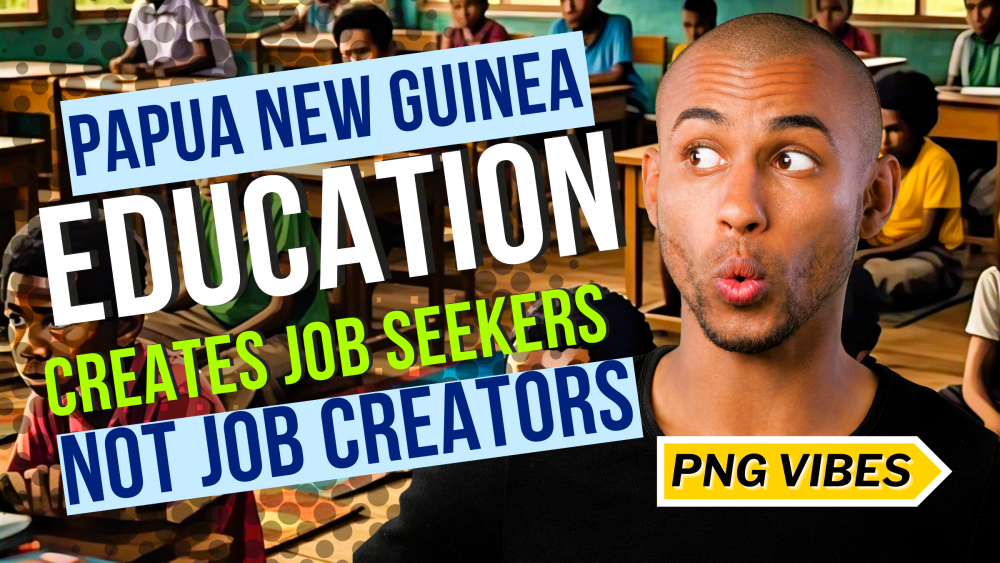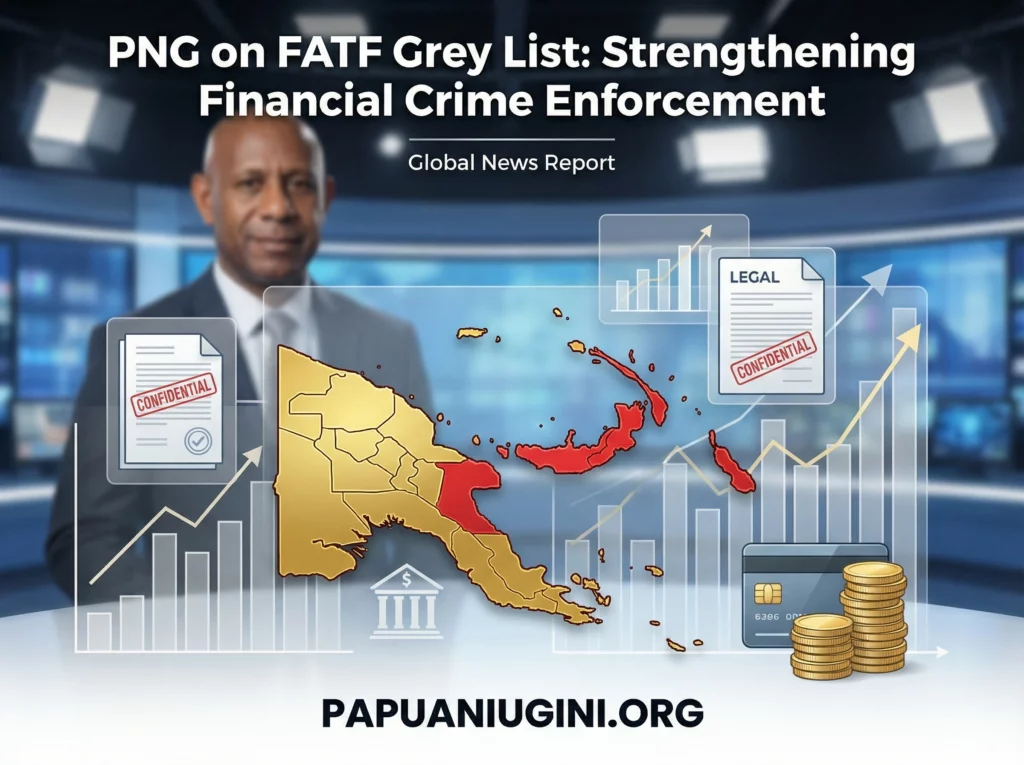PNG Education: Our Education System has been preparing us for employment, not self-employment. This article explores reshaping Papua New Guinea education system to foster self-reliance, leverage vast land resources, and cultivate an entrepreneurial spirit, moving beyond traditional employment models.
PNG Education – From Job Seekers To Job Creators

Reflecting on PNG Education System
For over 50 years since Papua New Guinea’s (PNG) independence in 1975, our education system has focused on preparing students for formal employment. While this aim has had merits, it is increasingly clear that this model may not be suitable for all in a country where 85% of the population live in rural areas and where formal employment opportunities are limited.
The question stands: Are we preparing students to be job seekers or job creators?
In PNG, where customary land ownership accounts for nearly 97% of land, there lies immense, underutilized potential for self-employment and entrepreneurship. However, the education system has yet to bridge the gap between knowledge and resource-based enterprise development. This article critically explores the historical, structural, and socio-economic factors underpinning PNG’s education system and presents practical, research-informed solutions for reform.
Historical Context and Colonial Influences
PNG’s education system has colonial origins, largely shaped by Australian administration pre-independence. The curriculum introduced during this period emphasized literacy, numeracy, and vocational training designed to create a compliant workforce for colonial administration and extractive industries.
Key legacy impacts include:
- Curriculum design prioritizing formal employment over self-reliance.
- A Western-centric view of success, undermining indigenous knowledge systems.
- A disconnect between what is taught and the socio-economic realities of most Papua New Guineans.
According to a 2022 UNESCO report, this inherited model has perpetuated cycles where education is pursued for wage employment in towns, despite limited opportunities, while ignoring the economic potential of locally available resources like land and traditional crafts.
Land Ownership: An Untapped Resource
Land is PNG’s most significant asset. Yet, it remains underutilized in the context of the national education system. Customary land rights provide security of tenure and potential for agricultural innovation, tourism, forestry, and small-scale manufacturing. However, education policies rarely emphasize land-based economic development.
This disconnection stems from:
- Curriculum misalignment with local economic activities.
- Lack of entrepreneurship education or resource management training.
- Overemphasis on white-collar careers as the pinnacle of success.
A 2021 study by the National Research Institute (NRI) found that only 7% of students in secondary schools had access to agricultural business education, despite agriculture being the livelihood of over 80% of the population.
Identifying the Skills Gap in PNG Education System
The current curriculum remains largely theoretical, lacking experiential learning that cultivates entrepreneurial spirit. Students graduate with certificates but not necessarily with competence.
Skills Missing in Current Curriculum
- Entrepreneurial and business skills
- Financial literacy and cooperative economics
- Critical thinking and problem-solving
- Digital and technological adaptability
Traditional assessments measure rote learning rather than innovation or practical skills. Consequently, many school leavers struggle to apply knowledge in real-world contexts or start viable businesses.
Celebrating Success Stories in Self-Employment
Despite systemic challenges, there are success stories that exemplify the potential of self-employment in PNG.
- Florence Jaukae Kamel, a bilum weaver from Goroka, transformed traditional craft into a global fashion business, employing and empowering dozens of women.
- In East Sepik, youth cooperatives have successfully launched cocoa farming businesses with guidance from NGOs like World Vision and CARE International.
- The Koki Fresh Produce Market, led by community women, showcases grassroots entrepreneurship in informal markets.
These examples highlight that when individuals are equipped with the right tools and encouragement, self-employment can be both sustainable and empowering.
Fostering Community Involvement in PNG Education System Reform
Educational reform must be inclusive and rooted in the local context. Communities, elders, business leaders, and youth should be active participants in shaping what education looks like in their regions.
Models to consider:
- Community-driven curricula based on local economies
- Incorporating oral histories, local governance, and cultural literacy
- Rural learning hubs that blend traditional knowledge and modern skills
A study by the PNG Education Advocacy Network (2023) shows that community engagement in curriculum design increases school retention and relevance of learning outcomes by 35%.
PNG Education at a Crossroads: Land, Skills & a Vision for the FutureProposing New Education Models
PNG can look to localized and adapted versions of global models for inspiration:
- Kenya’s Competency-Based Curriculum (CBC) – integrates entrepreneurship, agriculture, and digital skills from early education.
- Indonesia’s Desa Wisata (Village Tourism) Model – leverages local culture and environment for micro-tourism development.
- TVET Integration – Technical and Vocational Education and Training that includes farming, construction, and digital literacy could be localized and expanded.
Education reform in PNG must be adaptive and asset-based—one that recognizes land, culture, and community as drivers of economic potential.
Mobilizing Change 50 Years and Beyond
Stakeholders must act together to shift the tide toward educational relevance and inclusivity. This includes:
- Government: Revise national education policy to embed entrepreneurship and land-based enterprise education.
- NGOs and Churches: Support alternative learning pathways that value both formal and informal sectors.
- Private Sector: Partner with schools to provide mentorship, apprenticeships, and seed funding.
- Parents and Communities: Advocate for reform and participate in curriculum development.
PNG’s Vision 2050 highlights the need for an “intelligent, smart, fair and happy society.” This cannot be achieved unless education prepares individuals to not only find jobs but create them.
Charting the Path Forward for PNG Education
Papua New Guinea’s education system stands at a crossroads. The journey since independence has been transformative but not yet transformative enough. It has largely succeeded in promoting literacy and basic education, but has underperformed in empowering citizens to harness their own land, creativity, and entrepreneurship potential.
To chart a new course, we must:
- Embrace our identity and resources
- Empower local innovation
- Redefine success beyond formal employment
The future lies not only in what we teach, but in how we teach it and for whom. It is time for Papua New Guineans to lead the charge in educational reform that is grounded in our values, responsive to our context, and aligned with our vast untapped potential.



